Google Pixel Tablet review: check out what my Nest Hub can do

Google Pixel Tablet Intro
The Google Pixel Tablet launched in June of 2023 and it tries to fix an interesting problem with tablets — the fact that they are barely used. In an age where the typical smartphone has a 6-inch screen, users often reach for the handset instead of the slate that's propped on the desk. And, whenever you do try to use your tablet, you find out you use it so rarely that you forgot to charge it.
At least, that's how Google presented the issue, and we admit — some of us identified with it. So, the Pixel Tablet wants to be useful when placed on its proprietary dock, and to always be charged for you.
It ships with the magnetic Charging Speaker Dock. When plopped on it, the Tablet can become a digital photo frame, a Home Hub, or a media consumption device thanks to the fact that the dock has a higher power speaker inside it — hence the name.
Does it hit all the right spots? Is the Pixel Tablet worth $500 and does it replace a Nest Hub? Or are you better off spending on a more premium tablet and a cheaper smart speaker instead?
What’s new about the Google Pixel Tablet
- The first tablet with Google's Tensor G2 chip
- Bundled with Charging Speaker Dock
- Built-in Chromecast
- Selfie camera tracks you during video calls
- Supports any stylus built to the USI 2.0 standart
Table of Contents:
Google Pixel Tablet - what's in the box?
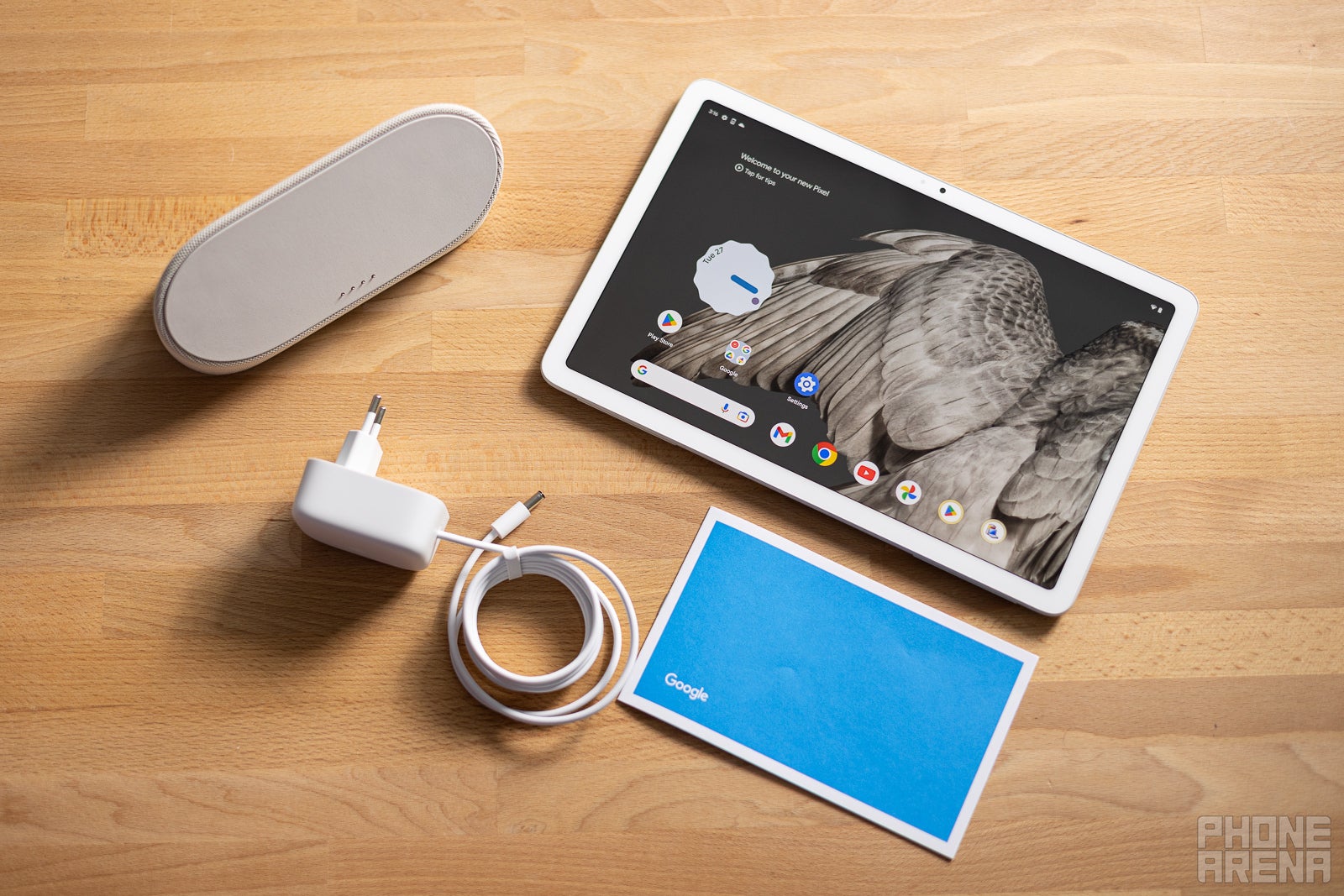
The Charging Speaker Dock comes bundled with the Pixel Tablet, which is nice — Google does market it as an essential part of the package. There's no USB C charger for the tablet itself, but you do get a plug for the dock (with a barrel connector).
- Pixel Tablet
- Charging Speaker Dock
- Power adapter (for the dock)
- Quick Start Guide and booklets
Google Pixel Tablet Specs
Is this just a bigger Pixel phone?
Google is proud of its Tensor G2 chip, so it slaps it inside the new Pixel Tablets as well. In raw power, it gets beaten by the competition, sure. However, the Tensor line of chips has been developed specifically to augment Google's strengths — the Google Assistant AI, speech-to-text engines, and photo post-processing.
| Specs | Pixel Tablet |
|---|---|
| Size and Weight | 10.2 x 6.7 x 0.3 in (258 x 169 x 8.1 mm); 17.4 oz (493 g) |
| Display | 10.95" LCD, 2560 x 1600, 500 nits |
| Processor | Google Tensor G2 |
| RAM and Storage | 8 GB LPDDR5 RAM 128 / 256 GB UFS 3.1 storage |
| Software | Android 13, minimum of 5 years of security updates |
| Cameras | 8 MP F2.0 rear camera, 84° FoV 8 MP F2.0 front camera, 84° FoV |
| Battery Size | 27 Wh (should be around 7,000 mAh) |
| Charging Speeds | unofficially supports 27W wired charging, up to 15W MagSafe wireless charging |
Interestingly, the front-facing camera doesn't have an ultra-wide lens, despite the Pixel Tablet having that feature that follows your face around... like the Center Stage on iPad (Google calls it Continuous Framing). For the full specs, check out our Pixel Tablet specs page.
Google Pixel Tablet Design & Colors
As unique as the Pixel Phones
It is quite nice to see that Google is going for its own design language on the Tablet as well. No, we don't get a RoboCop vizor here, rather a different blend of materials.
The Pixel Tablet is coated with a textured nano-ceramic layer, which feels kind of weird. Not quite like metal, not quite like plastic — we wouldn't say it feels "cheap". It's grippy and overally has a pleasant soft touch. Also, Google proudly states that it's made of 30% recycled materials, with the aluminum enclosure being made of 100% recycled content.
There are two rubber strips alongside the right frame of the Pixel Tablet — we imagine they serve as protectors, because pulling off the tablet from the Speaker Dock can result in a snapping motion as the magnets hold it fairly strongly. Also, they help identify which way "down" is when the tablet is being rotated to landscape.
The tablet itself is your average size, with an almost 11-inch display and size of 10.2 x 6.7 x 0.3 in (258 x 169 x 8.1 mm) — slightly taller, but slightly narrower than the iPad Pro 11" (the Pixel Tablet's aspect ratio is slightly wider, at 16:10, where the iPad Pro 11" is 4:3). The Pixel Tablet is also weighs 493 g, which is a normal-ish weight for that class (iPad Pro 11 is 468 g).
It comes in three colors, which Google calls Porcelain, Hazel, and Rose — a sort of a soft white, soft green, and pink-ish. We have the Porcelain here.
There's a fingerprint scanner embedded in the power button, and we are still getting used to it. It is recessed into a slit in the arched frame, so we sometimes can't get it to scan our finger right. It also doesn't help that the scanner itself is sometimes slow-ish to react. It doesn't fully break the experience, but it's sometimes an annoyance to unlock the device.
Google Pixel Tablet Display
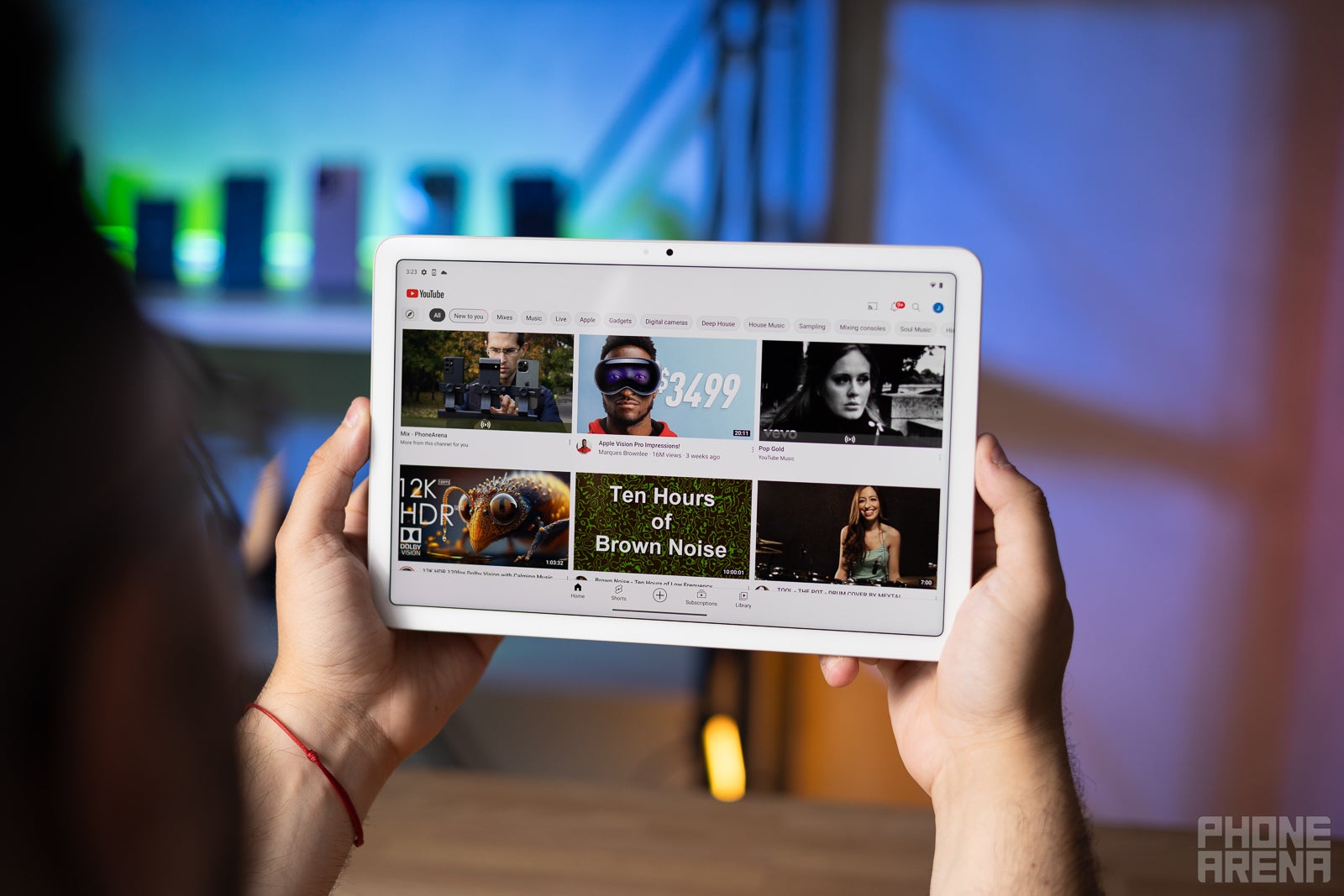
As mentioned, the Pixel Tablet has a 10.95-inch (or let's say 11") screen. It's an LCD panel with a resolution of 2560 x 1600 — that means it has an aspect ratio of 16:10 and a pixel-per-inch density of 276.
The screen looks fine — anyone who has been spoiled by OLED tech may notice that the backlit LCD is just not as top-notch in terms of contrast. But for brightness, colors, and sharpness, we find it good enough for casual use.
What we are disappointed by is the fact that it's a 60 Hz panel — no high refresh rate here. Which is kind of confusing since the Tensor G2 powers two Pixel phones that both have above-60 Hz refresh rates.
The good news is that the Pixel Tablet does support a stylus! And no, it's not a Pixel Pen or P-Pencil or something of the sort. It actually comes with USI 2.0 compatibility. The Universal Stylus Initiative is a relatively young standard, developed in partnership between Google, Samsung, Intel, Wacom, Dell, Sharp, and others. It basically allows 3rd party styli that are USI-compliant to work on your device, opening the market up for more choice instead of having an exclusive stylus. Unfortunately, we haven't tested one at this time.
Google Pixel Tablet Camera
Be at the center of video calls
On paper, the cameras of the Pixel Tablet are nothing to write home about — 8 MP sensors on both the back and front. That's fine — we usually don't use our tablets to take high-res photography masterpieces, right? You usually use those cameras to capture a document or make a video call.
And for that, Google has added another feature to Meet video calls — the selfie camera will zoom in and follow your face as you move around. Google calls the feature Continuous Framing and it should work much like Apple's Center Stage. We were kind of concerned with the camera's 84-degree field of view, as it won't give you a lot of framing to work with.
Unfortunately, we couldn't test this just yet. For some reason, Google Meet — both versions of Google Meet (that's not confusing at all, Google) — refuse to give us any kind of effects options when inside a call. We did get this as a retail unit from a store, so we are unsure what's up. We assume that there's a switch that needs to be flipped somewhere in the Google Services backstage, which still hasn't happened for certain regions? Or certain device serial numbers?
Anyway, how do these cameras perform?
As expected, the 8 MP sensors are not super-impressive, with a visible lack of detail and resolution. But they work fine if you want to take an easy picture of a document or something quick to share.
We were specifically impressed with how the selfie camera deals with faces and HDR in video calls — I typically take video meetings next to a big, bright window, and I could see in the viewfinder ho the Pixel Tablet was actively adjusting the brightness of my face while keeping glare from the window tame.
Long story short — you won't be using those cameras for high-end photography, but they do a good job for video calls.
Google Pixel Tablet Performance & Benchmarks
Not a leader, but definitely not a follower
The Pixel Tablet is powered by the Google Tensor G2 chip — the same one you can find in the Pixel 7a, Pixel 7, Pixel 7 Pro. It is not a productivity monster and it's definitely outmatched when up against a Snapdragon 8 Gen 2 or Apple A16. But the Tensor isn't here to provide raw power.
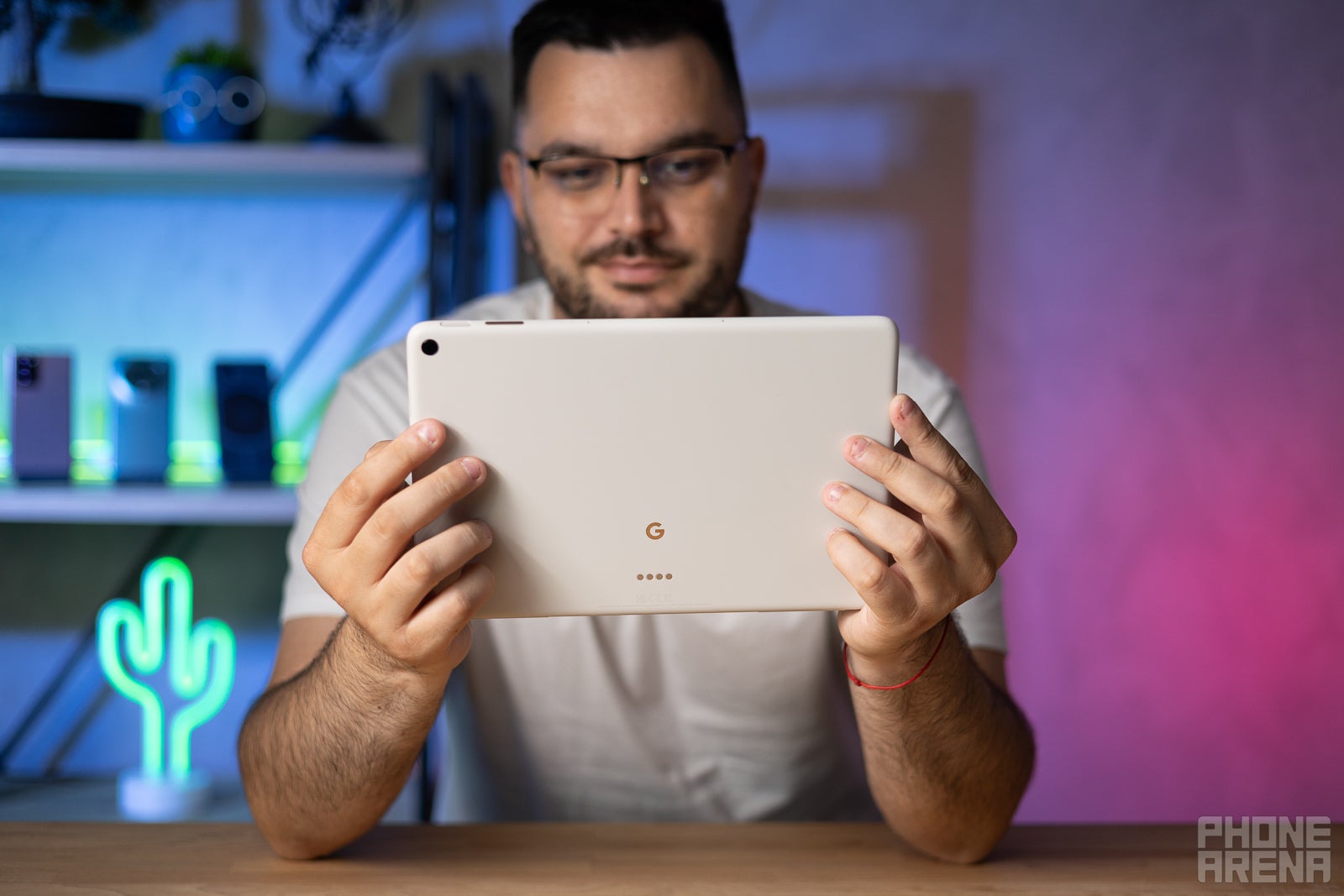
No, the Tensor uses its special cores to augment on-chip machine learning, AI functions, and photo post-processing. Those Magic Editor features don't come out from nowhere!
Unfortunately, we didn't get to test the Magic Editor just yet — the software features should be coming soon. But the Pixel Tablet is, indeed, pretty amazing at transcribing speech, text-to-audio, and you know — anything you ask the Google Assistant to do.
When it comes to performance, the Pixel Tablet is not... awe-inspiring. We are unsure whether we've been spoiled by 120 Hz tablets by now, but it just feels slightly sluggish when just browsing around. Not laggy, mind you, but we wouldn't say it's as snappy as a Pixel phone.
Thankfully, multi-tasking and using split-screen didn't seem to bog the Tablet down further — its performance is steady and stable, even if not super-fast. It has 8 GB of LPDDR5 RAM, which seems to be enough for what it does. As for storage, you can choose between 128 GB and 256 GB, both UFS 3.1 modules.
Google Pixel Tablet OS / Android version
It goes without saying, Google's new Tablet launches with Android 13 on board — a squeeky clean version of the software, the way Google intended it to be. Well, enhanced with exclusive features for the Google Assistant and the Magic Editor and Magic Eraser in Photos.
For productivity — it doesn't offer a whole lot of variety. We do get to split the screen for two apps at a time, but no floating windows or saving app pairs. If you compare it to something like Samsung's One UI, the experience feels bare bones.
But that's fine if you are just looking for a straightforward experience. It kind of feels like an iPad, but a bit simpler than that — weird as it is to say.
For the Pixel Tablet, Google promises a minimum of 5 years of security patches. A minimum — that's a nice thing to read! As for major Android builds — we didn't get an accurate promise there. Hey, here's hoping for at least three.
Google Pixel Tablet Battery
All day battery™
Google says the Pixel Tablet can get up to 12 hours of video playback (YouTube streaming) on a single battery charge. That's not... exactly our experience. The battery capacity is about 7,020 mAh, which isn't huge at all — lower than an iPad 10th gen and its 8,800-ish mAh.
So, in our tests, the Pixel Tablet's battery couldn't hold for long — we definitely didn't get that 12 hours of YouTube streaming. We test with the screen at a 200 nit brightness, which is about the level when using the tablet indoors on a sunny day.
For regular daily usage, we didn't find a huge issue with the power, though. Since the tablet is so easy to plop up on the charging dock — especially if you want to get that upgrade in sound — we essentially constantly had fuel in the tank, no worries. Well... as long as we are using it around the house that is.
Google Pixel Tablet Charging Speeds
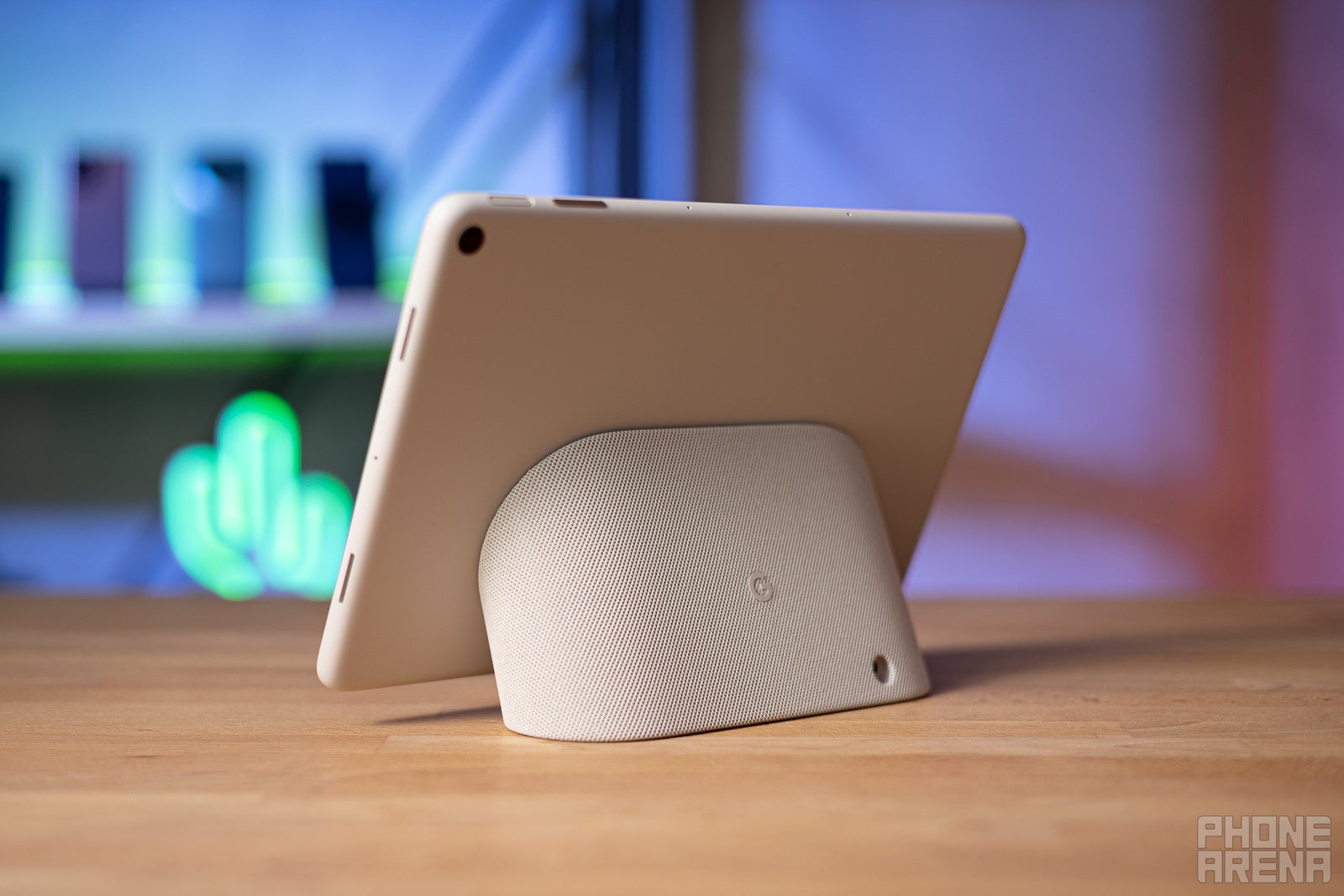
By default, you are expected to charge the Pixel Tablet via the magnetic Speaker Charging Dock. It's not a wireless charging situation, though — the dock connects to the tablet via 4 pogo pins and provides 15 W of charging power. That sounds kind of slow, but again, since it's meant to spend a lot of time on that dock — it doesn't matter a lot in the grand scheme of things?
Also, it's worth noting, that the Dock will charge the Pixel Tablet to 90% and stop. This is again, to avoid keeping the battery in a constant state of overcharge since the Tablet is supposed to be on that dock a lot.
Google Pixel Tablet Audio Quality
The Pixel Tablet on its own has a quad speaker array for full stereo sound! Upon first test, we weren't... super impressed. It does sound loud, yes, but actually kind of harsh. The Tablet's speakers lack a good bass or a meaty lower mid range. They do sound clear, though, but not something we'd be playing a lot of music through.
In comes the Speaker Charging Dock — it's supposed to be the Yin to the Pixel Tablet's Yang, the piece of kit that completes it and achieves audio nirvana. And yes, it does increase the volume and delivers massive bass once you connect the two. But the sound is... a louder meh.
Don't get us wrong, it's an OK sounding piece of kit. But it lacks clarity in the high end, its mids are a bit mushy, and the bass is just a bit too boomy. Kind of like one of those Bluetooth speakers that pump out a lot of bass to convince you that they "sound massive". Maybe our expectations for the "room filling sound" were high, but also maybe it's not just about being loud.
Let's go a bit further — the speaker dock has a single 1.7 inch full range speaker, which is just slightly bigger than the 1.57 in driver in the Nest Mini. A Nest Mini costs $50 and sounds pretty good by itself — not worse than the Charging Dock, actually. You can get a few of those, hide them in every nook and cranny, and stream music through them as they are autonomous. The Speaker Charging Dock will not work in any capacity unless the Pixel Tablet is placed on it.
The Nest Hub Max costs $230, and with two 0.7" tweeters and 2.95" woofer will sound — at the very least — the same as the Charging Dock... but we'd say — most probably better.
Google Pixel Tablet Competitors
With a price tag of $499, the Google Pixel Tablet sits between the Apple iPad 10th gen and iPad Air (2022). The OnePlus Pad can be considered a direct competitor to it, and it undercuts the Galaxy Tab S8 by about a $100.
So, does the Pixel Tablet have what it takes?
Both Apple and Samsung have went in a completely different direction — looking to make their tablet lines "productive tools" in some manner. Apple's iPads have tons of pro apps and support audio solutions that Android simply does not have. Then there's the Apple Pencil, and Magic Keyboard choices — which are admittedly very expensive, but also very good for work. And we finally got official Logic and Final Cut for iPad (and tons of 3rd party photo and video editors on the App Store).
Samsung's Galaxy Tabs come with the S Pen in the box and these are tablets that clearly invite artists to come in and draw on them. Plus, they have much more flexible split screen and floating window options. Oh, and a better screen at that. And, Samsung did manage to bring LumaFusion (popular video editor) to Android by striking a deal with the developers.
The Pixel Tablet is more... casual. It's there for fun. Put it on a dock to have a digital frame, or to have a Nest Hub that transforms into a tablet. OK, cool... but what does the tablet do? It's mostly an inflated Pixel phone that can do split screen, but has a lower refresh rate and not a very awe-inspiring performance. And if you want to draw, su-u-ure, you can try a USI 2.0 stylus that will probably be good. But there's no software from the developer backing this up or beckoning you to try it.
So, yes, we are kind of perplexed by the angle and can't find a way to recommend the Pixel Tablet right now.
Google Pixel Tablet Summary
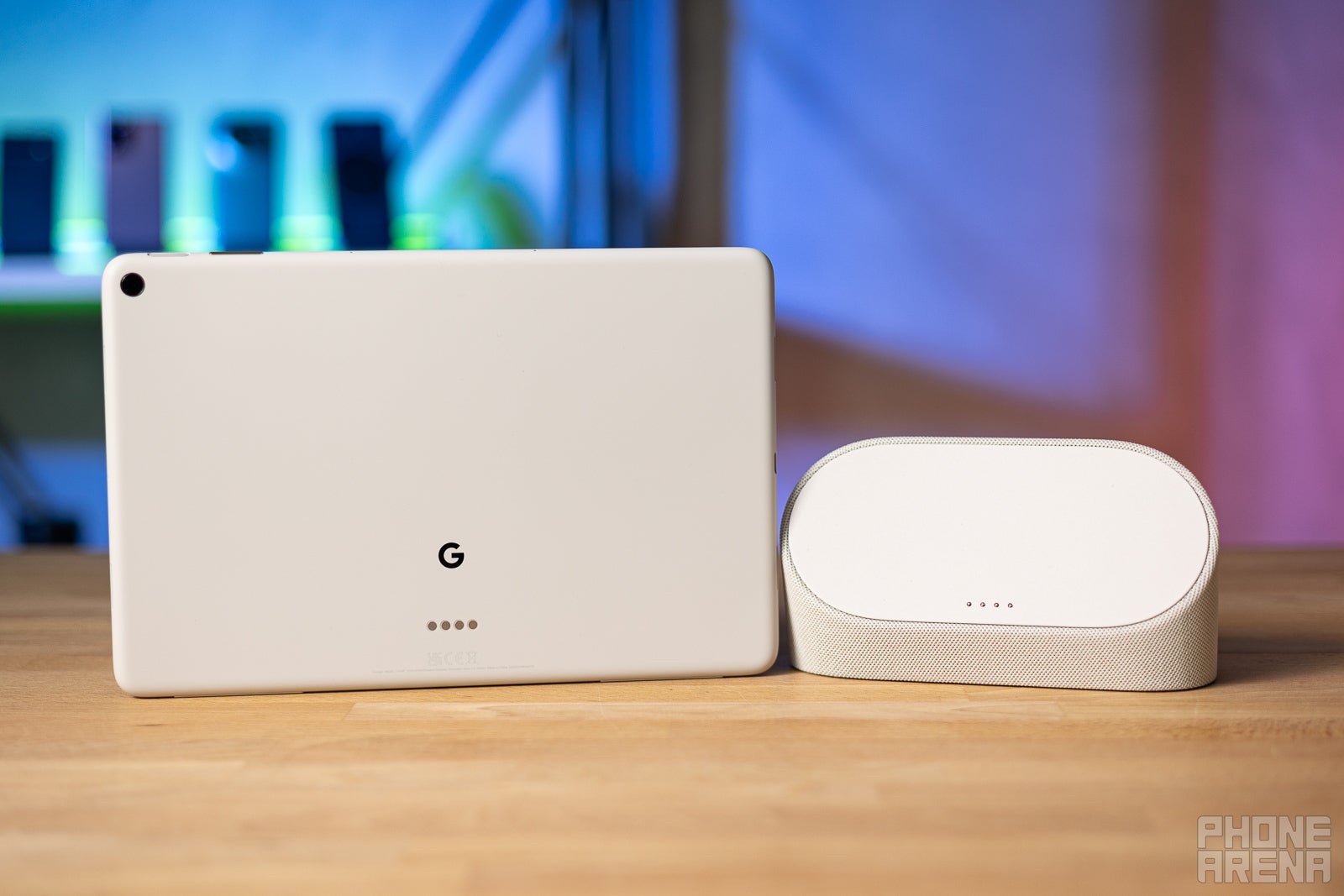
Sorry to go so grim and dreary on the final point. We find the Pixel Tablet a fascinating experiment and we are happy to see that Google was actually looking for a different angle when it comes to tablet devices instead of repeating the same old "Oh, here's a keyboard, here's a pen, have at it".
But ultimately, the Pixel Tablet failed to impress us as a standout device that deserves its full $499. At that price, one can stretch their budget a bit, go find a Galaxy Tab S8 deal and pair it with a $50 Nest mini or two.
We understand and appreciate that the $500 price tag includes a speaker dock that is not half bad... but it's fully useless unless the tablet is docked on it, unlike a dedicated speaker, which you can use and stream to at any point. And if the argument is "Well, keep the tablet on the dock, duh", we ask again — why not a $230 Nest Hub Max?
The fact that you can pick up the tablet off its dock and do some work on it — photo editing, or gaming in the bed — is its saving grace. If you see yourself doing that a lot, it might work out. But then again, you can do that with any tablet. You just have to be really, really invested into the idea of using this as a smart home hub and multimedia machine. And the speaker dock's audio quality kind of drops the ball on that second part.
*Disclaimer: You may notice review scores have changed on PhoneArena! Since September 20th, we have started using a new scoring system. Learn more about the new PhoneArena Smartphone Review Rating system here.
Follow us on Google News
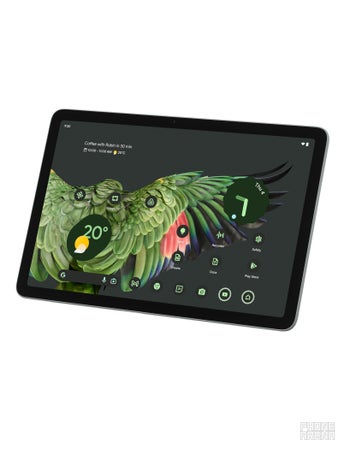
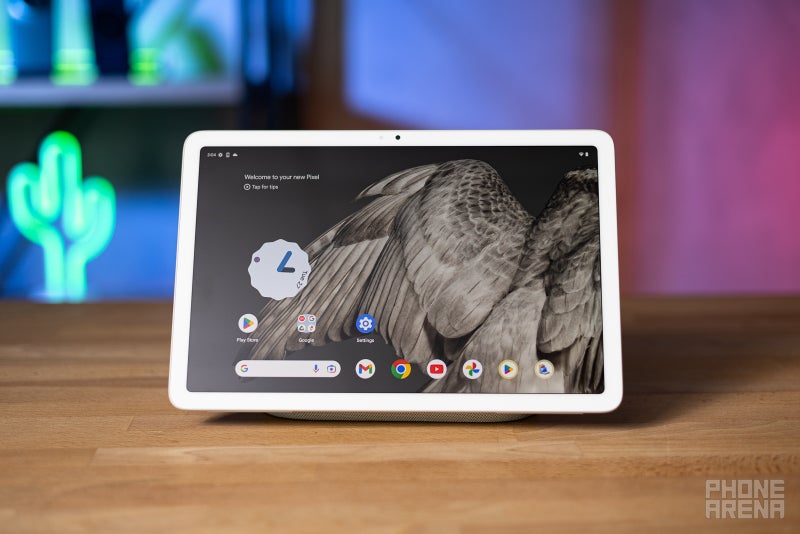
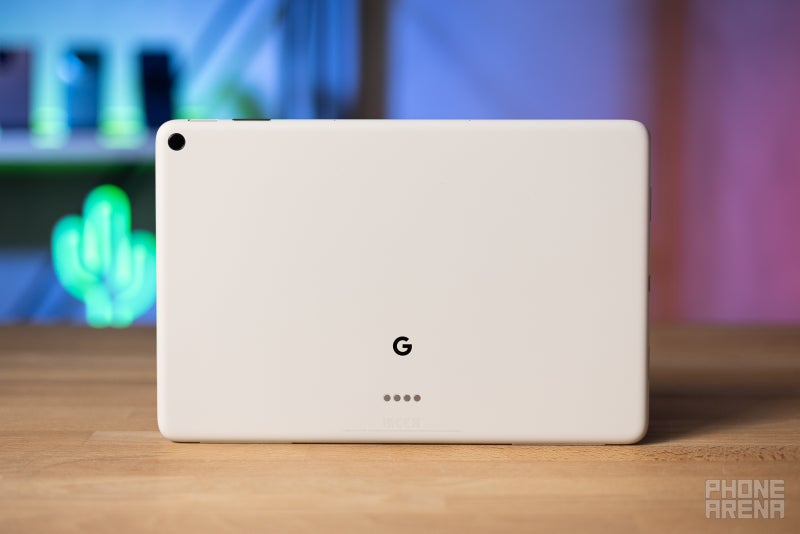
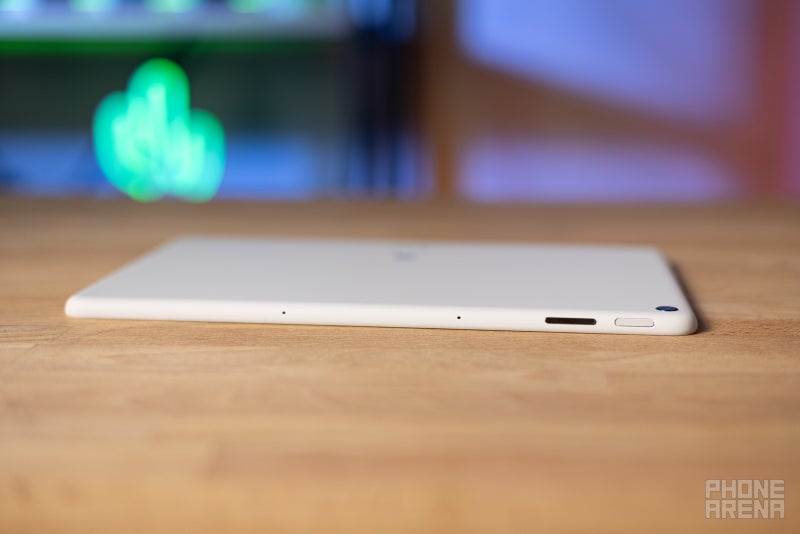
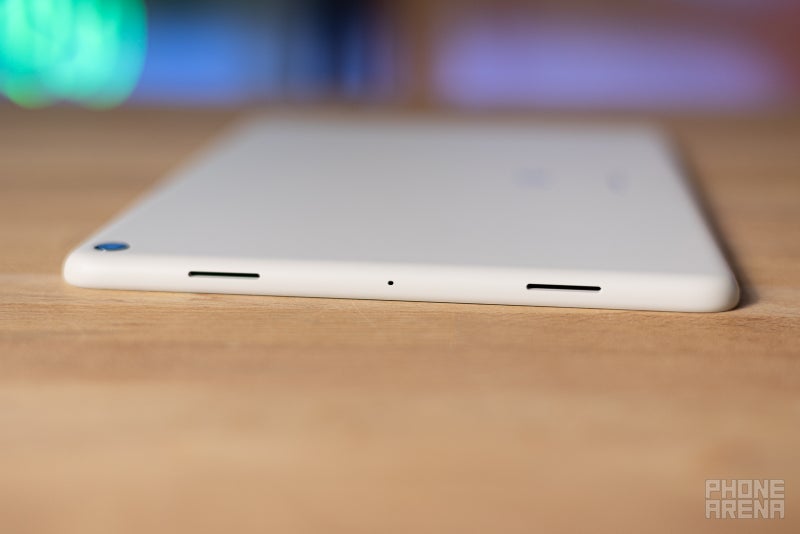
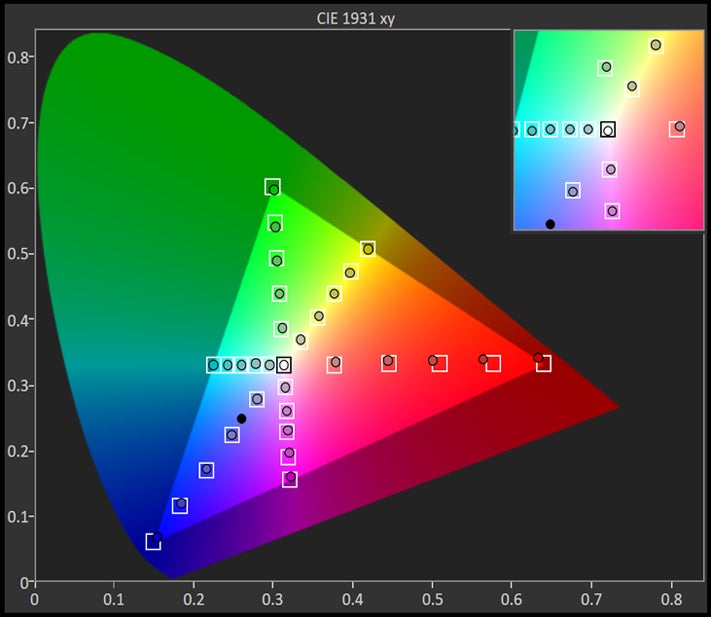











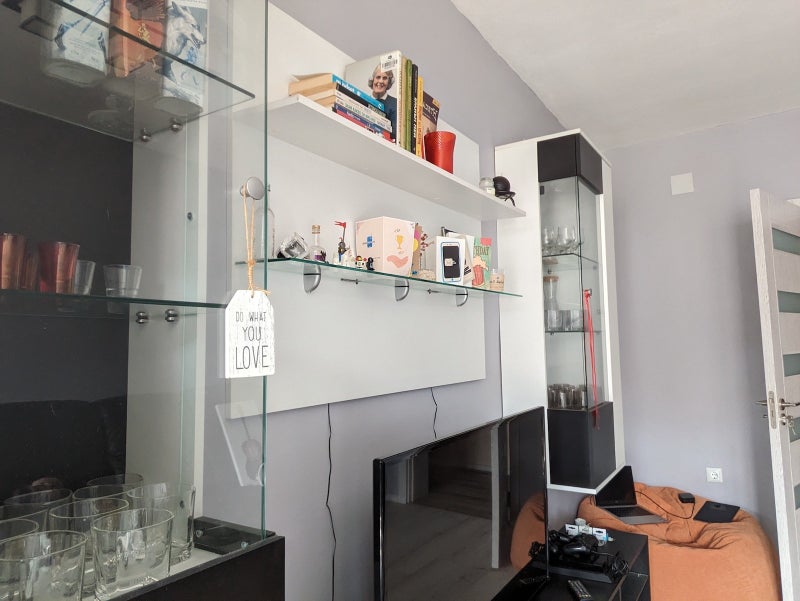
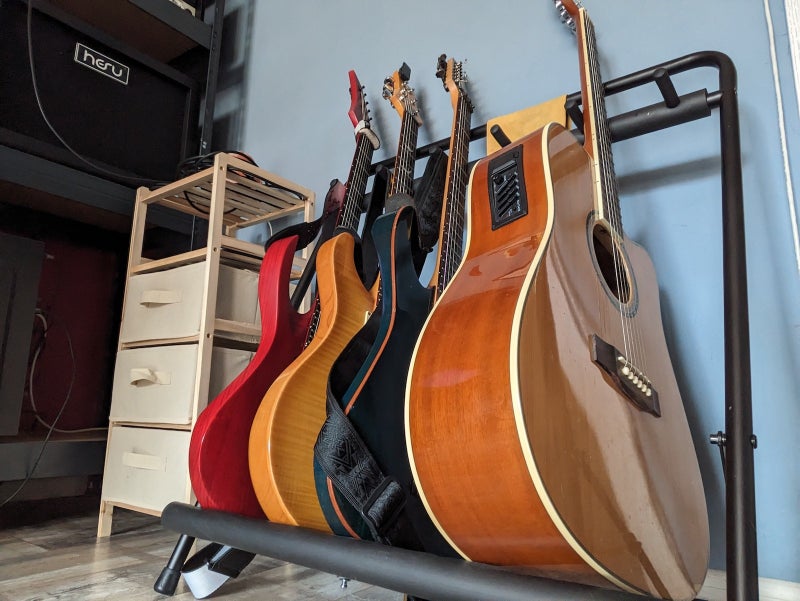


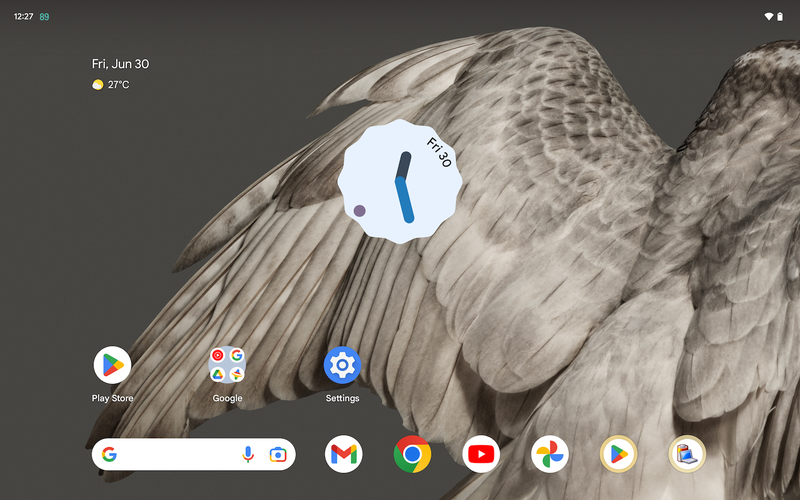
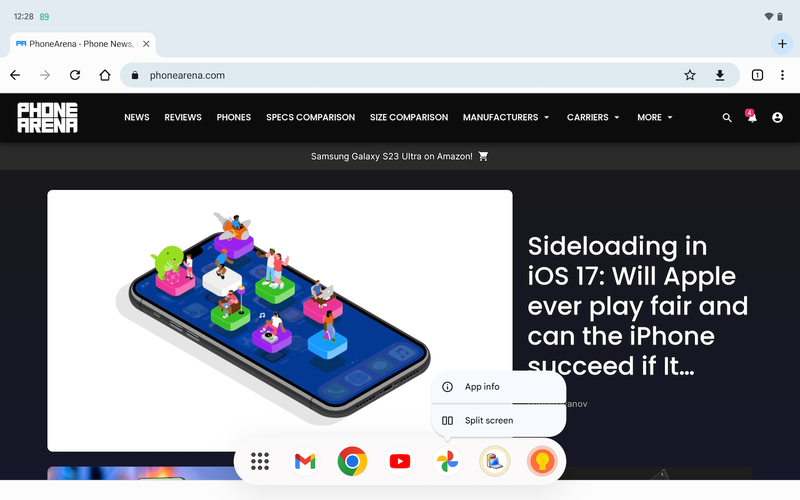
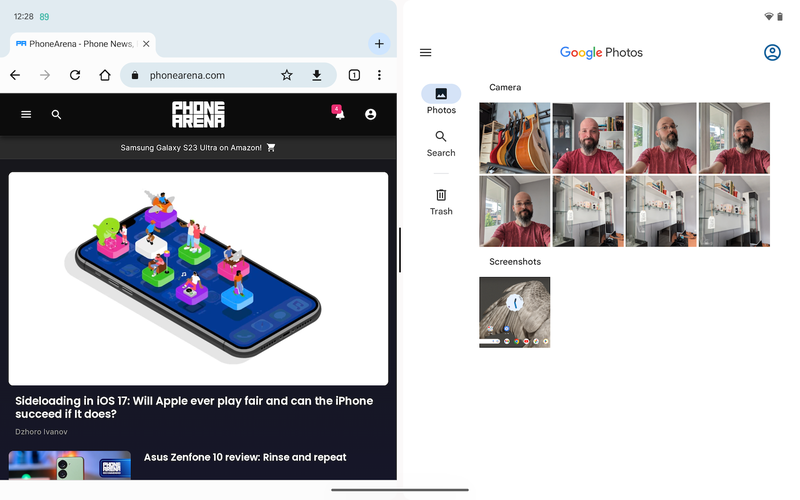
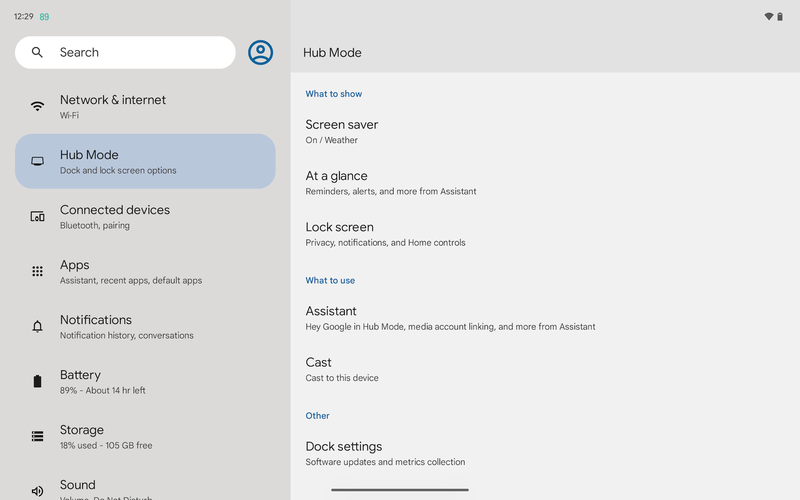
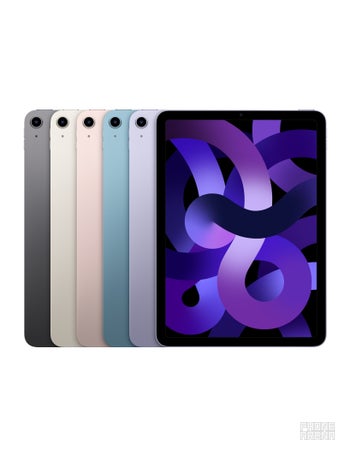
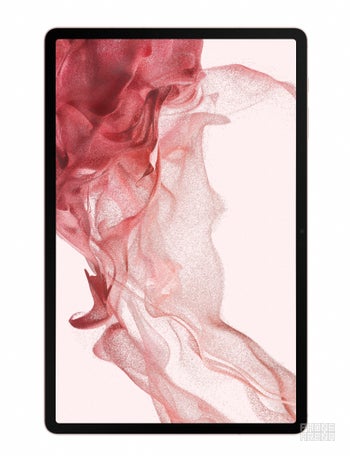




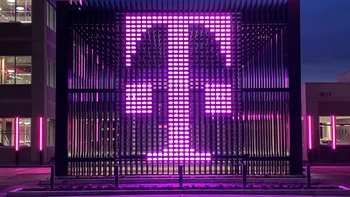










Things that are NOT allowed:
To help keep our community safe and free from spam, we apply temporary limits to newly created accounts: